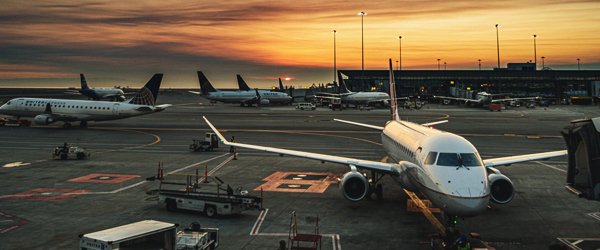Aviation Outsourcing Philippines
Reservations support, guest services, ticketing, flight disruption handling, loyalty program operations, cargo documentation, and aviation back-office workflows delivered by specialized Philippine teams.
From rebookings and travel advisories to crew support, airport operations coordination, flight data management, and aviation documentation — the Philippines provides accuracy, empathy, and global service excellence.
Aviation Outsourcing Philippines: Improve Customer Experience & Reduce Operational Costs
The aviation industry faces:
- Rising call and chat volumes
- Weather-related disruptions
- Complex loyalty programs
- Global traveler expectations
- Flight irregularity (IROPs) handling
- Crew coordination needs
- High complaint sensitivity
- 24/7 global operations
- Cost pressure on support teams
Philippine outsourcing firms deliver:
- Exceptional communication skills
- High empathy (critical for disruptions)
- 24/7/365 operations
- Multi-system proficiency
- Strong travel industry background
- 40–60% cost efficiency
- Accurate documentation management

PITON-Global connects aviation companies with the top outsourcing providers trained in mission-critical, time-sensitive workflows.
CEO Insight: Why Airlines Choose the Philippines
Aviation depends on flawless communication. Philippine outsourcing teams excel at delivering compassionate, accurate service during disruptions—maintaining customer trust and operational continuity.
John Maczynski, CEO, PITON-Global
Why the Philippines Leads in Aviation Outsourcing
1. Unmatched Customer Empathy
Critical for:
- Delays
- Cancellations
- Lost baggage
- Refunds & complaints
- Rebooking situations
2. Experience With Airline Systems
Philippine teams support:
- Amadeus
- Sabre
- Galileo
- Navitaire
- Departure control systems (DCS)
- Loyalty CRMs
3. High Accuracy in Time-Sensitive Operations
Required for:
- Cargo documentation
- Crew scheduling admin
- Ticket modifications
- Airport operations support
4. Skilled Multichannel Support
- Phone
- Chat
- Social media
- SMS
5. AI-Augmented Aviation Workflows
- Automated disruption alerts
- Real-time customer triage
- Predictive rebooking suggestions
- Ticket classification
6. 24/7 Global Service Coverage
Supporting multiple time zones worldwide.

Aviation Outsourcing Capabilities
Airline Customer Support
- Reservations
- Ticketing
- Seat assignments
- Fare rules support
- Ancillary purchases
- Travel advisories
- Refund & voucher status
- Lost & delayed baggage support
Flight Irregularity (IROPs) Support
- Rebooking
- Notification management
- Hotel & voucher coordination
- Disruption triage
- Passenger status updates
- Overflow support during storms, strikes, or technical disruptions
Airport Operations Support (Back-Office)
- Passenger documentation
- Advance passenger information admin (non-regulatory)
- Baggage tracing
- Airport incident documentation
- Passenger manifest management
- Flight data entry
- On-time performance reporting
Loyalty Program Support
- Tier status questions
- Miles redemption support
- Account troubleshooting
- Promotion details
- Membership assistance
Cargo & Freight Operations
- Airway bill (AWB) processing
- Cargo booking admin
- Container & ULD tracking
- Shipment status updates
- Invoice support
- Weight & balance documentation (admin only)
Crew Operations Support
- Crew scheduling admin
- Rostering updates
- Accommodation coordination
- Ground transport support
- Training documentation
- Logbook data entry
Travel Tech & GDS Support
- OTA ticketing support
- Booking modification
- System troubleshooting (Tier 1)
- User onboarding
- API integration support (non-technical)
Specialized Support for Aviation Segments
1. Airlines
- Reservations
- Customer support
- Loyalty programs
- IROPs
- Baggage
2. Airports
- Back-office ops
- Flight documentation
- Incident logging
3. Cargo Operators
- Airway bills
- Freight coordination
- Tracking
4. Aviation Services Providers
- Ground handling admin
- Crew support
5. Travel Tech Platforms
- OTA support
- GDS workflows
- Booking modifications
AI-Enhanced Aviation Operations (2026-Ready)
AI for Customer Experience
- Real-time disruption messaging
- Predictive rebooking workflows
- Automated voucher eligibility checks
AI for Back-Office
- Flight data extraction
- Auto-filing manifests
- Document OCR
- Duplicate detection
AI for Cargo
- Auto-reading AWBs
- Flagging documentation errors
- Route exception prediction
Compliance & Security
Our vetted providers maintain:
Standard
Purpose
- SOC 2 Type II
- Operational security
- ISO 27001
- Information security
- PCI-DSS
- Payment support safety
- GDPR
- Data protection
- IATA Operational Knowledge
- Airline process familiarity
Aviation Case Studies
Case Study 1: Global Airline
Challenge: IROP volume spikes during major storms
Solution: 150-agent disruption support team
Results:
- 38% reduction in response times
- Improved rebooking workflows
- Higher traveler satisfaction
Case Study 2: Cargo Operator
Challenge: AWB backlog
Solution: Dedicated cargo documentation team
Results:
- 99.1% accuracy
- Faster clearance cycles
Aviation Segments We Support
- Airlines
- Airports
- OTA / Travel Tech
- Cargo operators
- Aviation service companies
- Charter operators
- Aviation SaaS
- GDS-related platforms
Aviation Outsourcing Rates (Philippines 2026)
FUnction
Rate (USD/hr)
Reservations & Ticketing
$12–$14
IROP Support
$12–$16
Loyalty Program Support
$12–$16
Baggage Support
$12–$16
Cargo Documentation
$12–$16
Crew Operations Admin
$12–$14
Travel Tech Support
$14–$18
Team Leads
$16–$20
Why Aviation Companies Choose PITON-Global
- 20+ years in high-complexity outsourcing
- Experience with airline & GDS systems
- Deep knowledge of aviation workflows
- Vendor-neutral advisory
- Proven operational excellence
- 100% free expert BPO sourcing
We help aviation companies operate more efficiently, more reliably, and more profitably.
24/7 Aviation Support Operations from the Philippines
Source aviation-focused BPOs aligned to flight operations, passenger care, and global service continuity.





